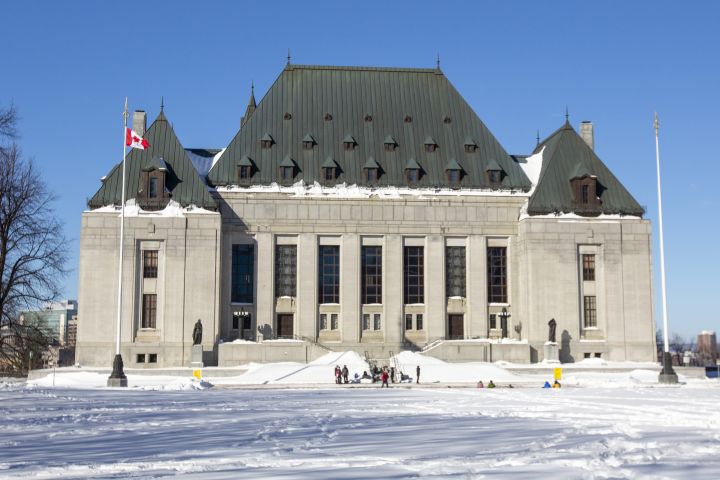An Alberta First Nation fighting what it calls overdevelopment of its traditional territory has been given a second chance to convince the courts that governments should advance money for its legal bills so it can spend the revenues it has on social needs.

In a decision released Friday, the Supreme Court of Canada overturned a ruling from Alberta’s top court that Beaver Lake Cree Nation wasn’t entitled to advance funding for its long-running legal case. The Supreme Court said the band was entitled to put first priority for the money it had on “pressing needs.”
“Allocating resources to improve deficits in housing, infrastructure, and basic social programming would, from the perspective of this First Nation government, constitute the addressing of pressing needs,” the court’s judgment said.
“We therefore disagree with the Court of Appeal inasmuch as it suggests that expenditures thereon represent ‘spending on desirable improvements’ rather than spending on pressing needs.”
But, in a unanimous decision, the court also said Beaver Lake has to go back to a lower court and work harder to prove the band’s needs are so great it can’t be expected to also fund its court action.
“There was no specific account of how much it would cost to address Beaver Lake’s pressing needs, or why no other resources were available to meet those needs,” the judgment said.

Get breaking National news
The First Nation filed the lawsuit against the federal and Alberta governments in 2008, arguing the Crown had allowed so much development on the band’s traditional lands that it was impossible to exercise treaty rights or to live a Cree life.
“There are multiple places we can no longer go to,” said band spokeswoman Crystal Lameman. “There are multiple examples of roads that are no longer accessible, trails that are no longer accessible, by way of lease pads or no trespassing signs put up by industry.
“There are species of medicines and flora and fauna that we can no longer find.”
READ MORE: Environmentalists raise concerns over possible oil leak in Alberta
The First Nation has already paid $3 million to fund its lawsuit. It has argued it doesn’t have enough money to keep the case going until its scheduled trial date in 2024.
The total cost of litigation is estimated to be $5 million.
Lawyer Karey Brooks, who represented Beaver Lake, said the decision lays down clear guidelines for courts to follow in deciding whether a First Nation should get their legal bills paid in advance.
“It leaves a road map that all First Nations that are seeking such an award will have to follow. It’s very clear.”
The court held that a First Nation government’s own ideas about what constitutes a pressing need should be considered in such judgments.
“Pressing needs are not defined by the bare necessities of life,” it wrote. “Rather, and in keeping with the imperative of reconciliation, they ought to be understood from the perspective of that First Nation government.”
Fourteen years into its lawsuit, Beaver Lake now has to go back into its books and return to Court of Queen’s Bench, where the action began, to make the case that it can’t afford to both support its people and defend its treaty rights.
“We’re not happy about it, but we welcome this exercise,” Lameman said. “We know this is not a full win, but this is a victory.”
A spokeswoman for the Alberta government’s Indigenous Relations department said it’s pleased with the decision.
“Alberta’s government is pleased that the Supreme Court of Canada has… provided additional clarification on the legal test that determines the First Nation’s ability to pay costs,” said Olga Michailides in an email. “We continue to work with Beaver Lake Cree Nation to ensure community members can participate in Alberta’s economy.”
Comment from the federal government was not immediately available.
Lameman said the costs and court time could be avoided by negotiation.
“We have repeatedly gone to the Crown to ask them to negotiate a resolution to costs and a resolution to the overall treaty case. Each and every time, they have denied.”







Comments
Want to discuss? Please read our Commenting Policy first.